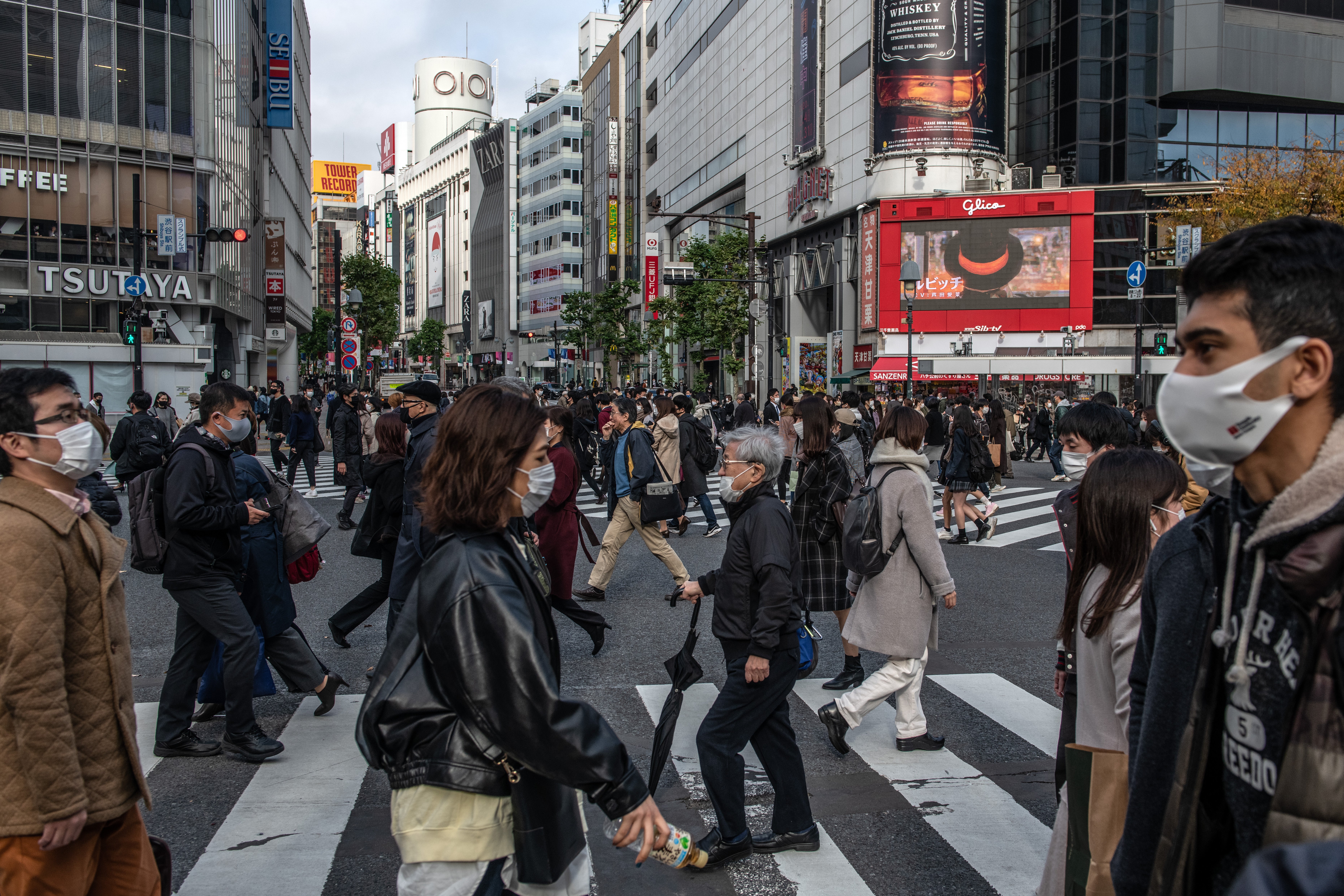Japan stockpiles vaccine freezers as coronavirus cases rise
Japan has so far seen fewer cases of coronavirus than many countries in the west

Your support helps us to tell the story
From reproductive rights to climate change to Big Tech, The Independent is on the ground when the story is developing. Whether it's investigating the financials of Elon Musk's pro-Trump PAC or producing our latest documentary, 'The A Word', which shines a light on the American women fighting for reproductive rights, we know how important it is to parse out the facts from the messaging.
At such a critical moment in US history, we need reporters on the ground. Your donation allows us to keep sending journalists to speak to both sides of the story.
The Independent is trusted by Americans across the entire political spectrum. And unlike many other quality news outlets, we choose not to lock Americans out of our reporting and analysis with paywalls. We believe quality journalism should be available to everyone, paid for by those who can afford it.
Your support makes all the difference.Japan said on Thursday it will buy 10,500 deep freezers to store novel coronavirus vaccines as it prepares for the "extraordinary task" of protecting its people, while the capital, Tokyo, reported a record number of new infections.
Japan, with a population of 126 million, has agreements to buy a total of 290 million doses of vaccines from Pfizer Inc, AstraZeneca Plc and Moderna Inc, or enough for 145 million people.
Pfizer's vaccines need to be kept at around minus 75 Celsius (minus 103 Fahrenheit), and Moderna's at about minus 20C, posing complex logistics challenges in rolling them out.
"An extraordinary task awaits us," Tokuaki Shobayashi, director general of the health service bureau at the ministry of health, told a media briefing on preparations.
A 90-year-old grandmother in Britain became the world's first person to receive a fully tested Covid-19 shot on Tuesday.
Though Japan has seen far fewer coronavirus cases than many western countries, new infections are on the rise as colder weather keeps people indoors.
In all, it has recorded more than 165,000 infections and about 2,500 fatalities as of Wednesday, with Tokyo particularly hard hit.
The capital reported a record 602 new cases on Thursday, with nationwide daily infections at 2,078, according to public broadcaster NHK.
Top officials said the situation called for "maximum caution" as the spread showed little sign of easing.
Defence Minister Nobuo Kishi this week ordered the military, known as the Self Defence Forces (SDF), to send nurses to a hard-hit city in Hokkaido prefecture in the north.
The government will also send nurses from the SDF to Osaka, in western Japan, where the number of coronavirus cases is rising, Kyodo news agency reported on Thursday.
The health ministry said it is too early to say when Japan would get the vaccines, but AstraZeneca has announced that, of the 120 million doses to be allocated to Japan, 30 million would likely be supplied in the first quarter of 2021.
The government will oversee the vaccination operation and shoulder the costs. Front-line medical workers, the elderly and people with underlying health conditions will be given priority to get vaccinated.
Doctors and nurses will give the vaccines at clinics and hospitals, while facilities with parking lots such as gyms, shopping malls and community centres were being considered as vaccination venues, the ministry said.
Major Japanese manufactures of freezers include PHC, Nihon Freezer and Ebac. The government also plans to buy dry ice in bulk to maintain cold supply chains.
Infectious disease specialist Norio Sugaya said coming late to vaccination had its upsides.
"Truth be told, it would have been good if we had been able to have this started by the end of the year," Mr Sugaya said.
"But we will be able to learn more about potential side effects and about how to build up the whole vaccination system that can maintain minus 70 Celsius."
Britain's medicines regulator has advised people with a history of significant allergies not to get the Pfizer vaccine after two people reported adverse reactions on the first day of its rollout there.
Reuters



Join our commenting forum
Join thought-provoking conversations, follow other Independent readers and see their replies
Comments